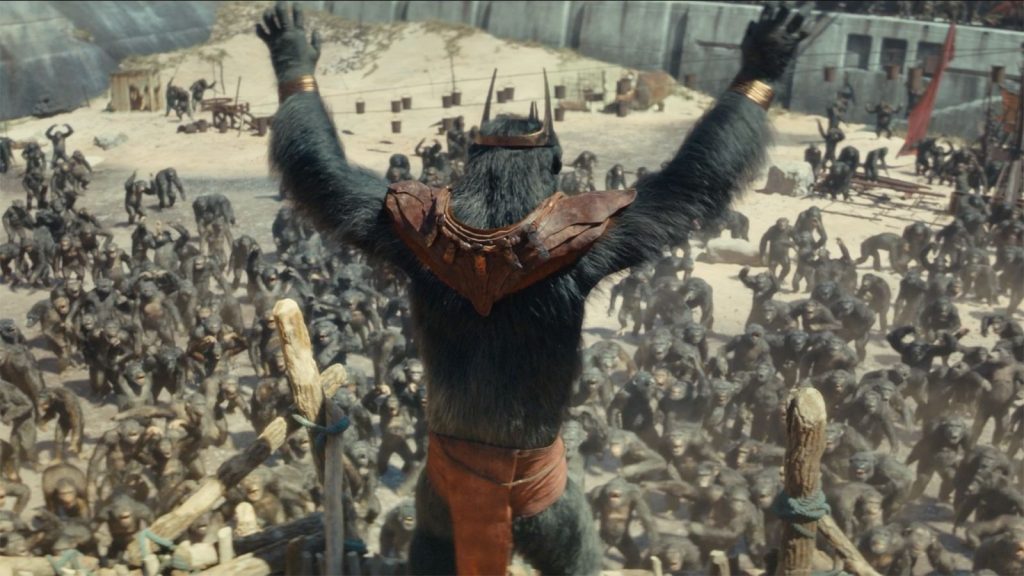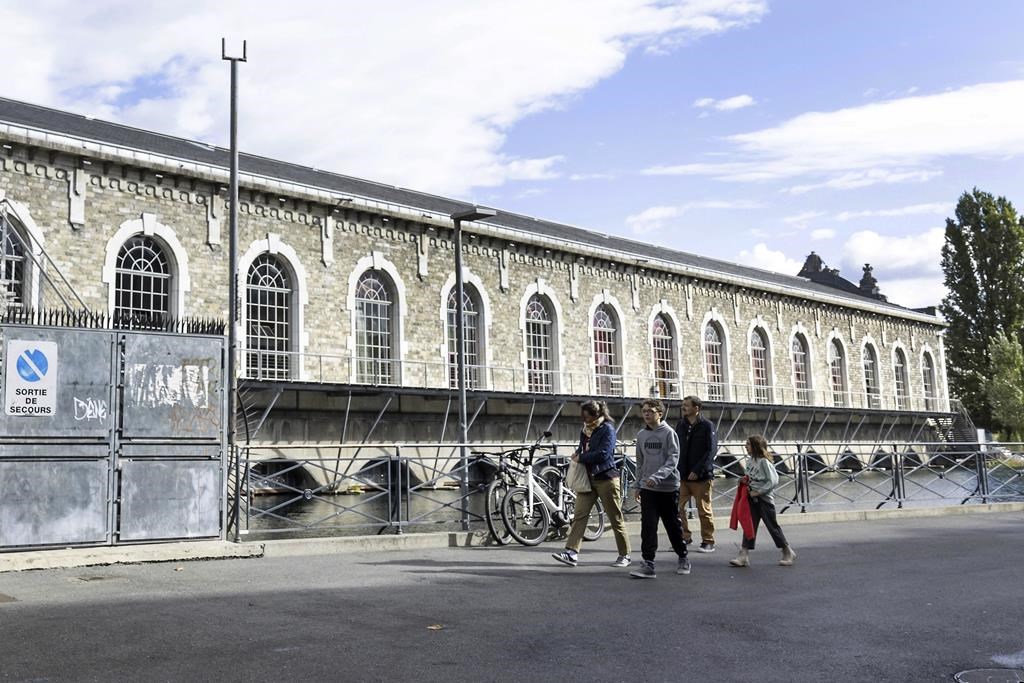With War for the Planet of the Apes in 2017, director Matt Reeves created a fitting finale to the reboot trilogy that began with Rupert Wyatt’s Rise of the Planet of the Apes six years earlier. Along with Reeves’s Dawn of the Planet of the Apes in 2014, these were three surprisingly solid films full of intelligence, emotion, and impressive craft, aiming higher than most blockbusters even consider trying for. War’s bittersweet ending even featured the death of the series hero, Caesar (Andy Serkis), which seemed to be the perfect spot to finish, closing out the beloved character’s arc. And three is such a nice number!
Yet with Kingdom of the Planet of the Apes, we return to that world (spoiler: it’s Earth) that has already given us nine movies (starting with the 1969 original) and two TV shows. Is the existence of Kingdom of the Planet of the Apes entirely necessary? Probably not. Absent Serkis’s Caesar (sob), does it still include most of what fans like about this franchise? Sure.
For those who haven’t seen the first movie or even the most recent three, Kingdom can serve as an okay entry point, as it doesn’t require deep franchise knowledge to understand; director Wes Ball does a solid job creating a new world after so much time has passed since both the reign of man and Caesar’s heroism. Both still echo through Kingdom, but it can stand on its own (though it’s not nearly as good as most of the films that precede it). A deeper knowledge of the previous, better films is helpful; some fun moments reference the original five movies as well as the reboot/prequel trilogy.
Centuries after the death of Caesar in War, the apes have evolved, developing rituals, roles, and technology within their growing society. Meanwhile, they have no contact with the few humans who have survived after driving themselves nearly to extinction. Living in isolation, the clan of apes maintains a peaceful existence, with three young chimpanzees — Noa (Owen Teague), Soona (Lydia Peckham), and Anaya (Travis Jeffery) — finding fun and trouble on the eve of an important rite in their adolescence.
Tragedy is central to these films, giving the apes more “humanity” as they show emotion in the face of trauma. Kingdom is no exception; soon the clan’s peace is interrupted by an attack from a warmongering group of apes. Noa must grow up fast to save his community from the ambitious bonobo Proximus (Kevin Durand) and the apes who follow him.

While the first three films in the reboot sequence followed humanity’s arc of self-destruction as apes grew in intelligence and power, Kingdom focuses more purely on the conflict between apes, with humans existing largely on the margins of this world and this story. It continues the series’ overarching theme that apes are stronger together, while also expanding on the idea that apes don’t only share humans’ positive characteristics but also exhibit our worst tendencies of selfishness, anger, and the desire for vengeance. Though Toby Kebbell’s bonobo Koba drove internal strife amidst the apes in Dawn, the earlier movies mostly featured human antagonists. Proximus is the most dangerous character in this fourth film, inflicting violence on his own people that was previously committed only by humans like War’s The Colonel, played by Woody Harrelson.
This entry features the least amount of star power in both the ape and human roles, with maybe only one name actor present. Yet it isn’t just the absence of big stars or recognizable faces; the film also lacks the powerhouse performance of Serkis as Caesar or even the marvelous Karin Konoval as Maurice. The sonorously voiced Peter Macon is Kingdom’s MVP in a secondary role as the hippie professor-esque orangutan Raka, adding humor and warmth to the proceedings, but he alone can’t keep this at the level of the previous trilogy. This is perhaps an unfair ask; Serkis is the greatest motion capture actor by leaps and bounds, so requiring anyone else to work on his level will only leave you disappointed. But these characters, as written in Josh Friedman’s script, also aren’t as compelling, which means that Kingdom isn’t as emotionally resonant as its predecessors. And while the humans have never been the best part of these movies, the disparity is especially great here.
Kingdom also feels longer, sagging a bit in its second half and whenever Raka isn’t on screen. It is the longest offering yet in the franchise, with the running times creeping higher with each movie in the 21st-century reboot. There isn’t a direct correlation between running time and quality; the first is the shortest and can’t match its successors. Meanwhile, Kingdom is only a little longer empirically than the second and third, but there are points where it crawls forward, rather than leaps with the energy of one of these apes.
Yet even with those issues, Kingdom remains a solid blockbuster with thrilling action sequences and the incredible CGI that fans have come to expect. It looks great, both in the realism of the apes and the world that surrounds them. With centuries since humanity ruled the earth, remnants of civilization have grown over and decayed even more since War, and it’s all beautiful and haunting and oddly hopeful. Ball (The Maze Runner movies) doesn’t have quite the eye that either his predecessors Matt Reeves or Rupert Wyatt do, but his vision for this franchise works.
In a universe where Rise, Dawn, and War never existed, Kingdom of the Planet of the Apes would be perfectly passable summer entertainment with an engaging enough story and great special effects. Yet it’s impossible not to compare to the bar set by those three superior movies (even the one that had James Franco). We’re lucky to get to spend more time in this world; I just wish this particular entry were a little better.
B-
“Kingdom of the Planet of the Apes” is in theaters this weekend.




